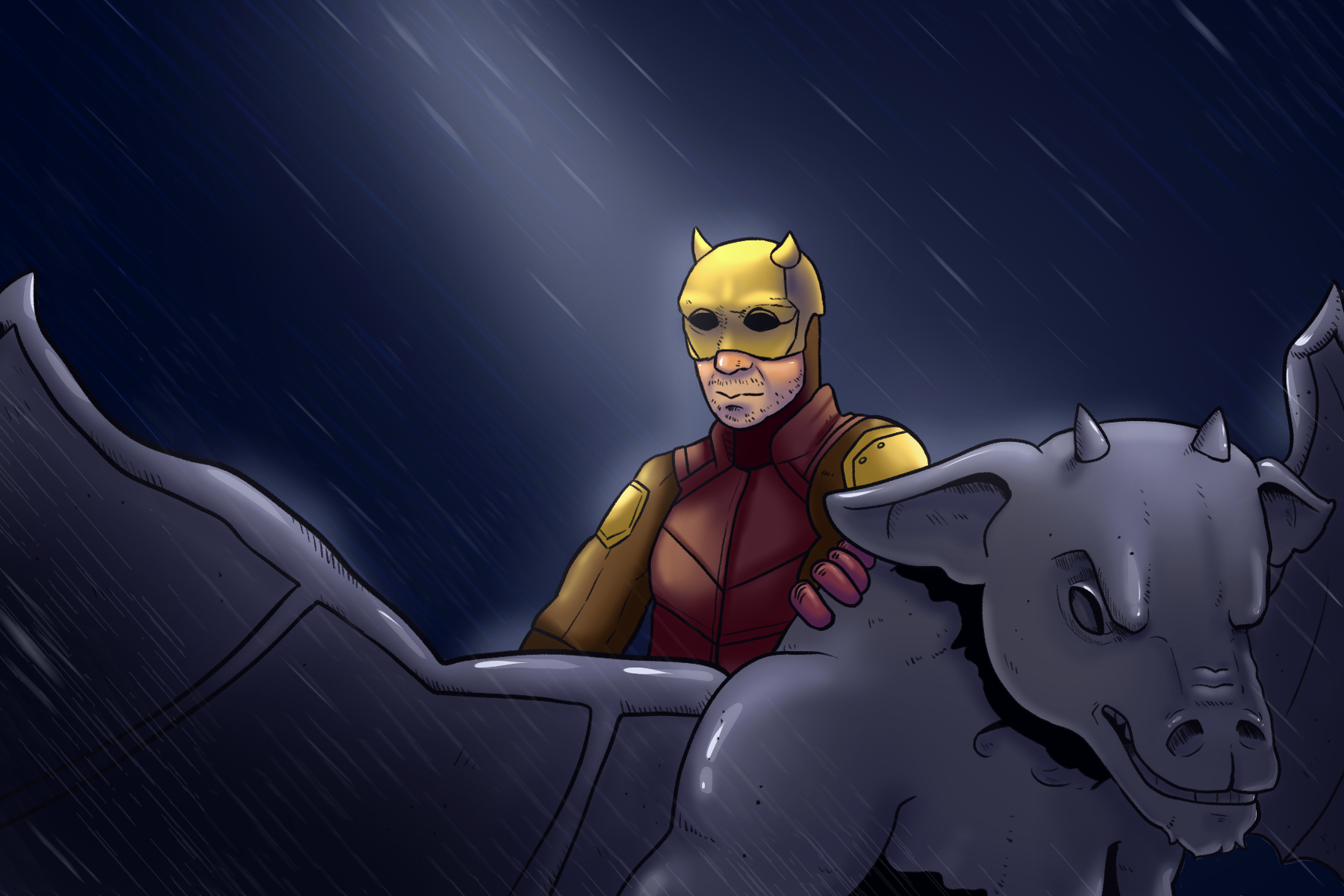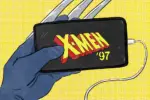The past ten years’ flood of superhero media is unprecedented: what was once a niche, ‘nerdy’ topic now has a place among the highest-grossing films of all time. One of the most highly rated superhero movies, “The Dark Knight,” has been applauded for its dark themes, excellent storytelling and skillful acting. “Avengers: Endgame” garnered unprecedented success for the sheer magnitude of the story and has taken a place in the top ten highest-grossing films alongside “Titanic” and “Avatar.” Amidst the buzz surrounding superhero movies and shows today, one show has been lurking quietly in the background with momentous critical acclaim and a 99% on Rotten Tomatoes. The TV series is dark and gritty. It tackles complex subject matter while staying grounded, its cinematography is on par with that of award-winning films, and it was canceled after only three seasons. This is the Marvel TV series “Daredevil,” which ran from 2015 to 2018.
“Daredevil” has returned to the spotlight due to the upcoming reboot of the series, “Daredevil: Born Again,” which is expected to air in early 2024. Daredevil also appeared briefly in “Spiderman: No Way Home” as Peter Parker’s attorney, where he delivered the iconic line, “I’m just a really good lawyer.” He appeared again in “She-Hulk: Attorney at Law” for one episode, acting as the titular character’s love interest.
When “Daredevil” was canceled in 2018, it came as a shock to showrunners and actors as well as the series’ devoted fanbase. The fourth season, which never came to fruition, had already been pitched to Marvel. It had gained momentum as a series, and its cancellation shocked the industry. But Netflix, which was Daredevil’s platform at the time, is not known for sticking with good investments. “Daredevil” is an expensive show, and some theorize this may be one of the reasons for the show’s cancellation. The most influential factor, however, probably has to do with the creation of Disney Plus. With the announcement of the streaming service, Disney began pulling their films and series from Netflix. “Daredevil” was not the only casualty. Marvel shows such as “Jessica Jones,” “The Punisher” and “Agents of S.H.I.E.L.D” were also canceled and taken off the platform, along with several movies. Fans were not happy.
The outcry that emerged from fans was understandable. “Daredevil” is among the best superhero adaptations to date. The cinematography is crisp and gritty, the heavy moments hit hard and the dramatic moments don’t come off as cheesy, despite the men in tights and Marvel’s penchant for clichés.
“Daredevil” centers around Matt Murdock, an attorney in Hell’s Kitchen, New York City. As a child, Murdock was involved in a chemical spill that blinded him but enhanced his other senses. The ‘superhuman’ part of him is muted at best: he is a normal guy whose superhuman abilities give him a bit of a leg up when fighting. He does not have superhuman strength or a flying iron suit. He has his fists, his brain, and a fiery passion for protecting his neighborhood. Because of his red devil suit, he is nicknamed “Daredevil” by the public.
The two other main characters, Foggy Nelson and Karen Page, have their own backstories and complicated personalities. Foggy is introduced as the stereotypical comic relief best friend, like Ned in Marvel’s “Spiderman” franchise, but it does not take long to see how intricately crafted his character is. He is Matt’s best friend, but more importantly, he is Daredevil’s foil and the one who keeps him grounded. For Foggy, the best way to solve problems is with the law, not violence.
The series tackles Murdock’s disability with grace. His special abilities do not aid him (for the most part) as an attorney. His need to help people has guided his career, and his lack of sight never prevents him from helping those in need. In the series, Murdock shows that his blindness is not a limitation nor the center of his life— it is just a part of him.
Daredevil is a minor hero compared to many of his Marvel counterparts. Compared to Iron Man or Captain America, he is small-time. He micromanages a single neighborhood in Manhattan, and even then, he is beaten to a pulp and nearly bleeds to death in trash cans on a daily basis. Matt Murdock’s small-time status was not only a good narrative decision — it also mirrors his character. He is not there to save the world, but rather to fight for those around him, often taking on one insignificant criminal at a time. He does not have the goal of ridding the city of crime or making a utopia out of Hell’s Kitchen, but he also can’t stand by while people are being hurt. Murdock’s heroics translate seamlessly from the streets to the courtroom and vise-versa.
Daredevil is darker than the average superhero show, as Murdock is put through the physical and emotional wringer episode after episode. The series is not shy about showing that Murdock’s violence is not always the best way and that the hero is often wrong. It challenges the audience to make up their own minds about Murdock and his actions. This is what makes Daredevil great: Matt is not always right, or even always good. His friends call him out, people die, and violence becomes an addiction.
Disney Plus’s revival of Daredevil has made fans both weary and excited. Daredevil had such a specific dark tone that fans fear might be spoiled, based on the goofy, light version of the hero presented in “She-Hulk.” The themes and moral dilemmas woven into the show are just as important as the titular character. Charlie Cox, who plays Murdock, will return, but the actors for Foggy and Karen are most likely not returning at all. With two-thirds of the trio not recast, fans are wondering what other integral parts of the original will be changed. A “Daredevil” stuntman has said that Marvel Studios “told every person working on that show that they don’t want ‘Born Again’ to look anything like the Netflix series.”
Change is often good, and sequels can be even better than their source material. But in the words of Daredevil’s arch nemesis, Wilson Fisk, “Time and distance, they afford a certain clarity.” One lesson is certainly clear: there’s no need to mess with a good thing.
















